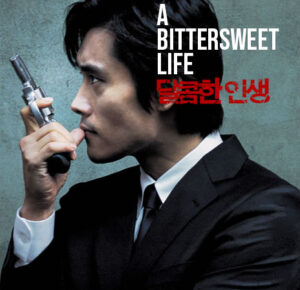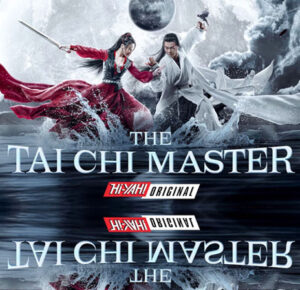Director: Park Heung-Sik
Cast: Lee Byung-Hun, Jeon Do-Yeon, Kim Go-Eun, Lee Joon-Ho, Lee Kyoung-Young, Kim Tae-Woo, Bae Soo-Bin, Kim Soo-Ahn, Moon Sung-Geun
Running Time: 121 min.
By Paul Bramhall
Korean cinema continues to create some of the most original and innovative movies for audiences to enjoy, however just like many other countries, it also has a film industry that likes to follow trends. If a movie makes it big, a trail of inferior copy cats is inevitable. With the success of the 2012 blockbuster Masquerade, lavish period pieces quickly became the in thing after an absence of several years, although none of them have really captured the success of the Lee Byung-hun starring historical drama. Three years on, and Byung-hun returns to the genre with Memories of the Sword, which also marks his first Korean movie since Masquerade.
Byung-hun’s name would usually be enough to sell a title, however a scandal which he found himself at the center of in 2014, that played out very publicly, saw him fall out of favor with a lot of the Korean public. It also explains why he’s kept his focus on building a career in Hollywood, having earlier in the same year featured in Terminator Genisys. Despite this, Byung-hun is one of the most charismatic and solid actors working today, so many are no doubt happy to see him back headlining a Korean production. Here he’s paired with an actress of equal caliber in the form of Jeon Do-yeon, with Memories of the Sword marking the second time the pair have worked together, after starring in Lee Yeong-jae’s 1999 drama The Harmonium in My Memory.
Helmed by Park Heung-sik, the movie marks the directors first time at attempting a wuxia. Known for dramatic pieces such as I Wish I had a Wife and My Mother, the Mermaid (both of which starred Do-yeon), as anyone familiar with Zhang Yimou would contest, when a dramatic director turns his attention to the wuxia genre it usually wields interesting results. The anchor for Heung-sik’s piece comes in the form of Kim Go-eun, who plays the daughter of one of the Three Great Swords, a trio of heroes that once fought to overthrow the corrupt military authorities of the time. All she knows is that her father was murdered when she was still a baby, and she’s been raised by a blind tea house owner, played by Do-yeon, with the one purpose of seeking revenge against the two people responsible for her fathers death.
This may sound rather heavy, which is in stark contrast to the sunflower filled fields the movie opens with, which see Go-eun cheerily running around them without a care in the world. After jumping over a 20 foot sunflower, she enthusiastically declares that she’s finally ready to go out into the world. Several gravity defying jumps later, she forces her way into a high ranking officials fight tournament, where she proceeds to take part in a duel marred by split-second editing, crash zooms, and generally hectic camerawork. Although as an audience it’s impossible to really see what’s going on, the high ranking official, played by Byung-hun, thankfully observes enough to recognize her fighting style, and tracks her down afterwards to find out who she is.
In a nutshell, Byung-hun and Do-yeon were the other 2 members of the Three Great Swords, and used to be a happy couple. However Byung-hun betrayed them, killing Go-eun’s father, and becoming a power hungry aristocrat. Do-yeon couldn’t bring herself to kill Byung-hun when she had the chance, but she does rescue the baby of her murdered comrade, and settles on raising it to kill both herself and Byung-hun when she becomes 20. Do-yeon stays true to her word, revealing her true identity to Go-eun and how Byung-hun killed her father, and explains how she must kill both herself and Byung-hun to avenge her father’s murder.
While the above may sound like I’ve just spoiled the whole plot, including all the reveals and twists, this isn’t so, as the events described all take place within the first 30 minutes. Herein lies Memories of the Sword’s biggest problem, in that by placing all of its cards on the table so early on, for a 2 hour production it leaves itself with 90 minutes to keep us interested and engaged. Unfortunately it fails miserably at doing this.
It’s difficult to ascertain what Heung-sik, who also wrote the screenplay, was aiming for here. In many ways it almost feels like we start proceedings in the middle of the story, with the first 15 minutes being full of Byung-hun and Do-yeon working their best tortured expressions. Do-yeon often looks into the distance regretfully, Byung-hun looks sad as he keeps remembering Do-yeon’s words, such as how boiling water looks like shrimps eyes (kindly provided by Do-yeon in voiceover), but none of the pained expressions are earned. The movie has just started, so we don’t have any emotional investment yet, but Heung-sik seems to think we should be sharing their pain from the word go.
As events unfold, everyone struggles with a script that becomes increasingly preposterous, with developments that defy believability and twists which are plain laugh worthy. Even the plot begins to break down under the weight of its own logic. Go-eun has been raised in the tea house Do-yeon runs, and from the opening scene we witness that it can’t be anymore than a kilometer from where she meets Byung-hun. However later on we’re supposed to believe that Byung-hun has never seen Do-yeon for the 20 years she’s been raising Go-eun, or known her location, despite apparently living in such close proximity to each other.
Memories of the Sword’s crimes sadly don’t end there, with themes and often whole scenes being ripped from other movies. The Three Great Swords are blatantly styled after the characters of Broken Sword, Flying Snow, and Sky from Zhang Yimou’s Hero (not to mention the imagined fight sequences and distinct color schemes). The training sequence in a bamboo forest manages to do a double whammy, bringing to mind both Ang Lee’s Crouching Tiger, Hidden Dragon and the Pai Mei sequences in Tarantino’s Kill Bill. Heung-sik also plagiarizes his fellow Korean contemporaries, with an attack on an outdoor tea ceremony starting off exactly like a similar scene from A Frozen Flower, and a fight in the shadows taken almost shot-for-shot from Lee Myeong-se’s Duelist.
The action itself poses another issue, in a production already riddled with them. Poorly shot, while Byung-hun acquits himself quite well (although he admittedly has little to do), Do-yeon and Go-eun are not so lucky, with Do-yeon in particular coming out the worse. While the blame lays more with the action director than it does with her, in the action sequences she’s required to perform in her uncoordinated flaying of the sword does anything but convince she’s a master swordswoman. Go-eun also seems too slight to really convey any believability in her duels, and seems miscast in the role of a character that has their world ripped out from under them.
Despite having a cast led by two heavyweights of Korean cinema, Memories of the Sword is the perfect example of a production which, if you don’t have the quality behind the camera, no amount of quality in front of it is going to hide the cracks. Featuring a ridiculous plot, a talking parrot, and Lee Byung-hun delivering the line “I’ll never drink tea again. Never”, with a perfect poker face, Memories of the Sword is, unlike its title, best forgotten for everyone involved.
Paul Bramhall’s Rating: 3/10










 In a man’s world, director Shin Su-won has created a distinct voice for herself within the Korean film industry, and by all accounts her latest movie, Madonna, should further establish her name as a considerable talent on a global level. Madonna was chosen to premiere in Australia as part of the 2015 Korean Film Festival, and Su-won, with producer Lim Chung-geun, flew in to attend the screening.
In a man’s world, director Shin Su-won has created a distinct voice for herself within the Korean film industry, and by all accounts her latest movie, Madonna, should further establish her name as a considerable talent on a global level. Madonna was chosen to premiere in Australia as part of the 2015 Korean Film Festival, and Su-won, with producer Lim Chung-geun, flew in to attend the screening.


















6 Comments